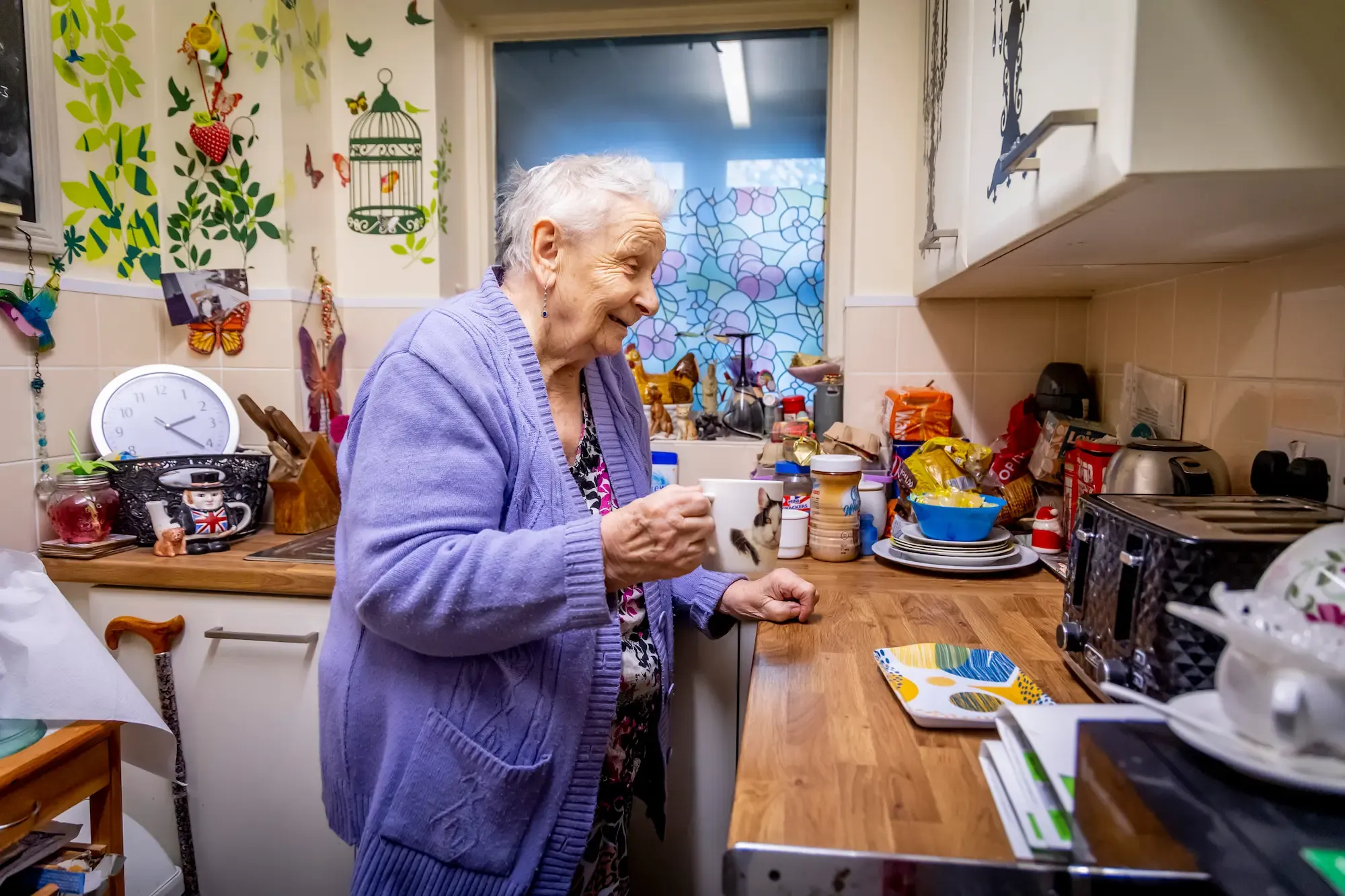What’s The Difference Between Home Care Agencies and Self-Employed Carers?

Estimated Reading Time: 7 minutes
This article was reviewed by Hannah Karim, Customer Care Lead at Lottie, on 4th September 2025. Hannah Karim has over three years of experience within the care sector and works closely with families to ensure they find the right care option. Hannah has received training from organisations such as Mind and The National Bereavement Service, and is also a certified Dementia Friend. Next review due September 2026.
If you’re searching for care at home, one of the first things to decide is whether to go through a home care agency or hire a self-employed carer, such as through a service like Curam. While both options offer support to help you remain independent in the comfort of your home, there are several key differences in terms of cost, flexibility, regulation, and more.
Below, we’ve explained what home care agencies and self-employed carers are, how they differ, and how to decide which is the right choice for you or your loved one.
Arrange care at home
Browse the best home care in your area.
In this article:
- What is a home care agency?
- What is a self-employed carer?
- Key similarities and differences
- How do costs differ?
- Which is right for you or your loved one?
What is a Home Care Agency?
A home care agency is an organisation that provides trained carers to look after people in their own homes. They offer a fully managed service, meaning they take care of scheduling, supervision, adjusting support as needed, regulatory compliance (all agencies are regulated by your country’s relevant regulator), and the vetting process.
You can find an agency using a marketplace such as Lottie. We connect care-seekers with the UK’s best home care agencies, and you can also use Lottie to request a free shortlist of home care agencies in your area, delivered straight to your inbox.
You’ll contact an agency to discuss your or your loved one’s needs. They’ll then assess your needs and match you with suitable carers from their team. These carers will visit according to a pre-agreed schedule. This could range from short daily visits to full-time live-in care.
Common services offered by home care agencies include help with tasks such as washing, getting dressed, and using the bathroom, preparing meals, medication support, mobility assistance, companionship, housekeeping tasks like cleaning and caring for pets, and specialist care for conditions such as dementia or Parkinson’s.
What are the advantages of choosing a home care agency?
Their carers are fully vetted
Agencies are regulated by their relevant regulator, such as the Care Quality Commission (CQC) in England. These regulators regularly review agencies and provide ratings for guidance
If your regular carer isn’t available for whatever reason, an agency will usually be able to find cover, ensuring care is always given
Agencies can often provide you with a team of carers. This team will then work together to ensure 24/7 support is available if necessary
Agencies will invest in ongoing training for carers, to ensure they remain fully up-to-date with the latest practices
Agencies handle various legal aspects, including insurance and liability cover
What is a Self-Employed Carer?
A self-employed carer is an independent care worker who supports individuals in their homes, but isn’t employed by a care agency or similar company. Instead, you’ll directly hire and pay a self-employed carer.
Self-employed carers set their own prices and work under contracts or informal agreements with the person they’re looking after. Before care begins, you’ll agree on terms, including hours, rates, and specific duties.
As they work alone, self-employed carers are responsible for various tasks outside of giving care, including having up-to-date training and DBS checks, managing their availability, and having the correct insurance.
While self-employed carers usually aren’t regulated and inspected by a regulatory body such as the CQC in England, they still offer numerous care types (depending on the individual carer’s experience), such as personal care, light-touch household help, managing and administering medication, companionship, and specialist care.
You can find and hire a self-employed carer through an online directory like Curam or other sources, such as relevant Facebook groups.
What are the advantages of choosing a self-employed carer?
They’re often a more affordable option
They offer a huge amount of flexibility when choosing how long you’d like care visits to last
Flexibility is also available in terms of adjusting care plans according to your specific needs and preferences
You’ll be looked after by a consistent caregiver who, over time, will become a trusted face
Key Similarities and Differences
| Key Point | Home Care Agencies | Self-Employed Carers |
|---|---|---|
| A range of care services are available, including personal care, household support, mobility assistance, companionship, live-in and overnight care, and specialist care for those living with complex conditions | ✔ | ✔ |
| Always regulated by a regulator such as the Care Quality Commission (CQC) | ✔ | ❌ |
| Backup care is usually available if your regular carer isn’t available | ✔ | ❌ |
| You’ll always have the same carer | ❌ (Carers may change, dependent on availability) | ✔ |
| There’s often a team of carers | ✔ | ❌ |
| There’s a formal complaints procedure | ✔ | ❌ |
| Usually more affordable | ❌ | ✔ |
| Greater flexibility with hours | ❌ | ✔ |
| Insurance and liability cover is handled | ✔ | ❌ (Carer must provide this) |
| DBS checks and vetting is handled | ✔ | ❌ (You’ll need to check) |
| Ongoing training and supervision are provided to carers | ✔ | ❌ |
How Do Costs Differ?
Typically, home care given by a home care agency is more expensive than that given by a self-employed carer. Lottie’s internal home care costs data shows that across the UK, home care given through an agency costs the following:
- Hourly care (per hour) - £27
- Live-in care (per day) - £206
- Overnight sleeping care (per night) - £178
- Overnight waking care (per night) - £230
On the other hand, self-employed carers will usually charge around £15 to £25 per hour, and around £100 to £170 per day for full-time live-in care.
The higher costs of home care agencies reflect things such as:
- Carer training and vetting
- Insurance
- Holiday/sick cover
- Management, office, and administration costs
In both cases, the exact cost will depend on where you’re looking in the UK and how great your or your loved one’s care needs are.
Which Is Right For You Or Your Loved One?
Home care agencies are best for those who prefer a fully managed service. You’ll have minimal involvement in arranging care and other administrative tasks, such as running DBS checks. You’ll be guaranteed trained carers and replacements when needed.
On the other hand, a self-employed carer offers greater personalisation, flexibility, and cost control. This makes it an excellent option for individuals or families who want to build a direct relationship with the person providing care. You’ll also feel comfortable managing some of the logistics yourselves, including contracts, payments, and vetting before care begins.
Loading FAQs...



